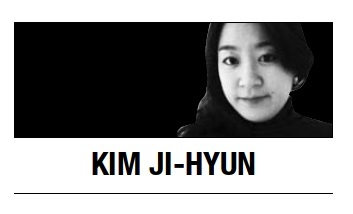
Deep into the night, after my 9-year-old has finally tuckered out, I sometimes gently fold down the covers to see how much he has grown.
And grown he has. The other day, he finally beat me in a wrestling match, fair and square.
But when I see him asleep in his pajamas, I notice how tender his little body is, how fragile his young bones are. And it’s not just physically. When he is scared, fear leaps into his eyes. When he is sad, I can see the sorrow in them. He may seem like a tough kid at times, but I know that he is still very much a little boy who needs all the protection in the world.
Then I read about how children his age, or even younger, are put through unbearably brutal beatings or other forms of abuse that at times takes their lives.
Child abuse is an appalling crime, and for some reason, it has become more frequent in many parts of the world, including Korea, with the methods bordering on psychotic.
Recently in Japan, a bill was submitted to parliament to facilitate speedier raids at homes where child abuse is suspected. The idea itself is not new, for there is already a law in place allowing such inspections. The problem is, only eight such investigations were carried out since related laws were enacted in 2008.
In Korea, a bill was passed this week designed to hopefully offer better protection for abused children. The main idea is that the government will shoulder more responsibility for their care.
I personally don’t have a lot of confidence in these laws, in Korea or Japan. It is not possible to supervise children — or their parents, for that matter – 24/7.
Instead, I feel a bigger emphasis should be on society’s views on domestic violence, and how kids are treated in general.
As in Korea, domestic violence in Japan is often seen as just that: domestic, meaning that authorities are reluctant to intervene where it is suspected. It is only after a child has died that the law steps in.
Unfortunately, the line between parental guidance and actual violence is often blurred.
Children of the late American entertainer Bing Crosby were once embroiled in a bitter feud after one of them claimed his father beat them regularly. Another sibling contested that the beatings were a fair and systematic means of punishment. As you can see, one child may perceive corporate punishment as justifiable, while to another, it could be abuse.
So who decides? Whoever it is, it should never be the child. Children still depend on their parents for a home and their instincts probably tell them they should not betray their kin.
It should be the community that the child is growing up in. If abuse is suspected anywhere, at any time, regardless of the degree, it should be checked out. If it turns out to be nothing, great. If not, then perhaps a life was saved.
How society looks upon children is another element in this issue.
If kids are seen as little more than an alter ego of their parents, as a belonging or small people who should offer their utmost obedience to elders, abuse might just be a natural part of life.
Unless children are considered as complete equals, the abuse cannot stop. The only reason adults can hurt kids is because they are physically superior, and if we allow this to be considered normal, even between parents and their own kids, there can never be a real respect for the younger generation.
I still remember the shock I felt when I witnessed a young mother shaking her daughter by her hair at a mall somewhere on the outskirts of Tokyo. My friend told me to just look away, but I could not. And I couldn’t help wondering if at any time, my son ever felt abused by me. It doesn’t always have to be physical. If I treat him as someone who is not my equal, as someone who deserves to be chastised and berated at my whim, then that also could be a form of abuse.
They say it takes a village to raise a child. In the modern day, the scope of responsibilities of that village includes working proactively to prevent abuse and possibly, homicide.
By Kim Ji-hyun (jemmie@heraldcorp.com)
Korea Herald correspondent

